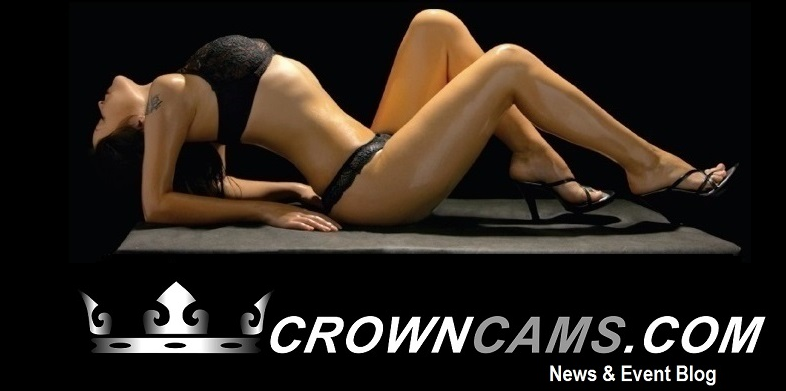Thursday, April 10, 2014
GoDaddy Averts Suit by 'Revenge Porn' Victim
BEAUMONT, Texas — GoDaddy.com averted a legal scuffle today after a Texas appeals court ruled that a group of revenge porn victims could not sue the web host because it is not a content provider.
Hollie Toups and 16 other women had filed a breach of privacy, intentional infliction of emotional distress and negligence suit last year against Texxxan.com and GoDaddy in Orange County District Court.
The plaintiffs acknowledged that GoDaddy did not have a hand in creating the offensive material, but they claimed that it knew of the content, refused to take it down and profited from it.
While the trial court refused to dismiss the claims against GoDaddy, a three-judge panel with the 9th District Court of Appeals in Beaumont reversed the decision today.
"Allowing plaintiffs' to assert any cause of action against GoDaddy for publishing content created by a third party, or for refusing to remove content created by a third party would be squarely inconsistent with section 230" of the federal Communications Decency Act, Justice Charles Kreger wrote for the court. "Because GoDaddy acted only as an interactive computer service provider and was not an information content provider with regard to the material published on the websites, plaintiffs cannot maintain claims against GoDaddy that treat it as a publisher of that material."
Kreger added that the Communications Decency Act (CDA) grants immunity even in cases involving illegal and obscene material and that limiting its application to suits involving constitutionally protected material would “undermine its purpose.”
Toups’ request for another appeal was rejected
Follow @CrownCams
Thursday, March 6, 2014
Court Says 'Upskirt' Photos Are Legal
(CNN) -- Massachusetts' highest court ruled Wednesday that
it is not illegal to secretly photograph underneath a person's clothing -- a
practice known as "upskirting" -- prompting one prosecutor to call
for a revision of state law.
The high court ruled that the practice did not violate the
law because the women who were photographed while riding Boston public
transportation were not nude or partially nude.
"A female passenger on a MBTA trolley who is wearing a
skirt, dress, or the like covering these parts of her body is not a person who
is 'partially nude,' no matter what is or is not underneath the skirt by way of
underwear or other clothing," wrote Justice Margot Botsford of the state
Supreme Judicial Court.
CNN legal analyst Sunny Hostin said the law has not caught
up to technology and called it an assault on a woman's right to privacy.
"I think the courts got it wrong," Hostin said.
"The spirit of the law makes it clear it is about the person's
privacy."
The ruling stems from the case against Michael Robertson,
32, who was arrested in 2010 and accused of using his cell phone to take
pictures and record video up the skirts and dresses of women on the trolley,
according to court documents.
Two separate complaints were filed against Robertson with
the transit police. Authorities then staged "a decoy operation" to
catch Robertson, who was eventually arrested and charged with two counts of
attempting to secretly photograph a person in a state of partial nudity. Police
observed him point a cell phone video camera up the dress of a female officer,
court documents state.
Wednesday's ruling reversed a previous decision by a lower
court, which had denied a motion by Robertson seeking the dismissal of the
case, said a statement from the Suffolk County district attorney's office.
"In sum, we interpret the phrase, 'a person who is ...
partially nude' in the same way that the defendant does, namely, to mean a
person who is partially clothed but who has one or more of the private parts of
body exposed in plain view at the time that the putative defendant secretly
photographs her," the high court ruled.
The ruling that state law "does not apply to
photographing (or videotaping or electronically surveilling) persons who are
fully clothed and, in particular, does not reach the type of upskirting that
the defendant is charged with attempting to accomplish on the MBTA."
Prosecutors had argued that the current statute, which
prohibits secretly photographing or videotaping a person who is "nude or
partially nude," includes upskirting, according to documents.
But Robertson's lawyers argued that the female passenger on
the trolley was not "nude or partially nude" and was not in a place
where she had a reasonable expectation of privacy, according to court
documents.
"Every person, male or female, has a right to privacy
beneath his or her own clothing," Suffolk County District Attorney Daniel
Conley said in a statement Wednesday. "If the statute as written doesn't
protect that privacy, then I'm urging the Legislature to act rapidly and adjust
it so it does."
Robertson's lawyer, Michelle Menken, did not return a phone
call seeking comment.
Robertson faced misdemeanor charges punishable by up to two
and half years in prison.
Friday, February 21, 2014
Wednesday, February 19, 2014
UCLA Porn Panel Features Jessica Drake, Tasha Reign
This summary is not available. Please
click here to view the post.
Monday, February 10, 2014
7 Reasons to Make Yourself Scarce on Valentine's Day
This summary is not available. Please
click here to view the post.
Thursday, February 6, 2014
Study: Porn Changes Relationships for the Better
This summary is not available. Please
click here to view the post.
Wednesday, January 15, 2014
Subscribe to:
Posts (Atom)


